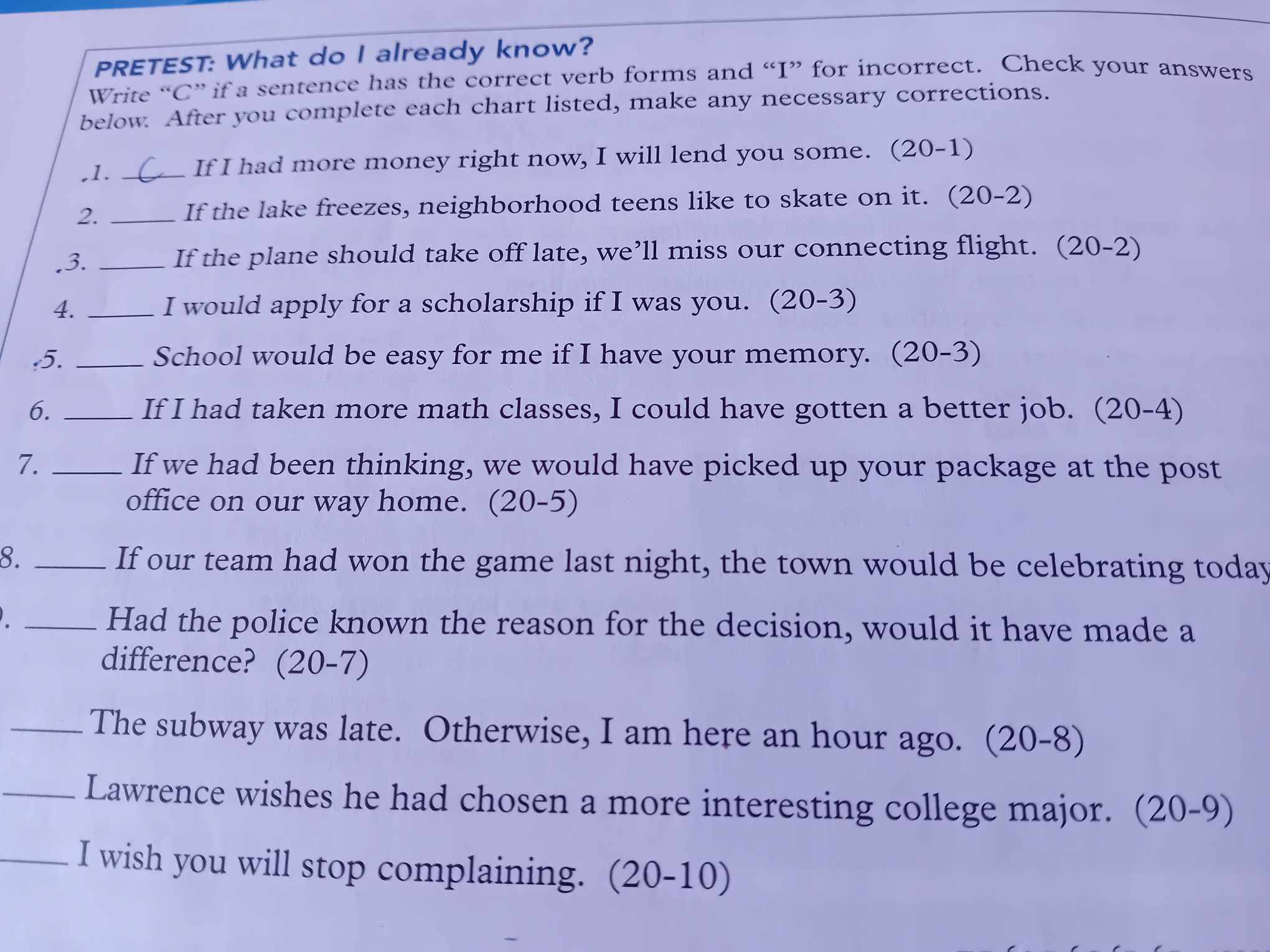Conditional sentences
1- Warm-up: distinguish between the four types. Which real and which unreal.
Conditional sentences express the idea of if ….., then, these sentences can talk about real situations- facts, regularly occurring events, etc.- and unreal situations- imaginary or impossible ones.
Types of condition:
|
Situation |
If- Clause |
Result Clause |
Examples |
|
Real in the present Real in the future |
Simple present |
Simple form of the verb Will + simple present |
If I have enough time, I watch TV every evening If I have enough time, I will watch TV every evening |
|
|
|
|
|
|
Unreal in the present / future |
Simple past |
Would + simple form |
If I had enough time, I would watch TV now or later on. |
|
Unreal in the past |
Past perfect |
Would have + past participle |
IF I had had enough time, I would have watched TV yesterday. |
2-
|
Expressing Real situations in the Present or the Future |
|
|
(a) If I don’t eat breakfast, I always get hungry during class (b) If I don’t eat breakfast tomorrow, I will get hungry during class (c) Water freezes if the temperature reaches 32° F/C°. (d) Water will freeze if the temperature reaches 32° F/C°. |
In conditional sentences that express real or true, factual ideas in the present/ future, simple present, the simple present ( not the simple future). Is used in the If- Clause. The result clause has various possible verb form. A result clause verb can be: - The simple present , to express a habitual activity or situations, as in (a). - The simple future, to express a particular activity or situation in the future, as in (b). - The simple present or simple future to express an established, predictable fact or general truth, as in © and (d). |
|
(e)If it rains, we should stay home. If it rains, we might stay home. If it rains, we can’t stay home If it rains, we’re going to stay home |
The result clause can also include modals and phrasal verbs modals such as should, might, can, be going to, as in € |
|
(f)If anyone calls, please take a message (g)If anyone should call, please take a message. |
An imperative verb can be used in the result clause, as in (f). Sometimes should is used in an If clause, as in ((g). It indicates a little more uncertainty than the use of the simple present, but basically the meaning of examples (f) and (g) is the same. |
2.1-
|
Unreal ( Contrary to fact) in the present or future |
|
|
(a) If I taught this class, I wouldn’t give tests. (b) If he were here right now, he would help us. (c) If I were you, I would accept buy a car (d) If I were you, I could accept buy a car. |
In (a): actually, I don’t teach this class. In (b): actually he is not hereright now. In ( c): actually I am not you. Note: were is is used for both singular and plural subjects. Was (with I, he , she ,It) is sometimes used in very speech: If I was you, I would accept their invitation. |
|
Compare: (d)If I had enough money, I would buy a car. (e)If I had enough money, I could buy a car. |
In (d) the speaker wants a car but doesn’t have enough money. Would expresses desired or predictable results. In (e) the speaker in expressing one possible result. Could = would be able to, could expresses possible options. |
|
Unreal ( Contrary to Fact ) in the Past |
|
|
(a) If you had told me about the problem, I would have helped you. (b) If they had studied, they would have passed the exam. (c) If I hadn’t slipped on the stairs, I would have broken my arm. Compare: (d) If I had had enough money, I would have bought a car. (e) If I had enough money, I could buy a car. |
In (a): actually, you didn’t tell me about it. In (b): actually, they did not study. Therefore, they failed the exam. In ( c ): actually, I slipped on the stairs.I broke my arm. Note: the auxiliary verbs are often reduced in speech. “ If you’d told me, I would’ve helped you ( or I- duv helped you)”. |
|
|
In (d): would expresses a desired or a predictable result. In (e) :could expresses a possible option. Could have bought = would have been able to buy |

- Teacher: Leila Bidi